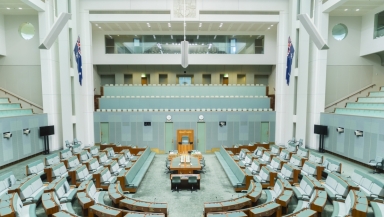
Australia's Federal Government has bowed to pressure from faith groups and indicated that it will include protections for religious expression in a revamp of its proposed misinformation bill.
The proposed Communications Legislation Amendment (Combating Misinformation and Disinformation) Bill would give the Australian Communications and Media Authority (ACMA) the power to issue social media companies with millions of dollars in fines if they allow content deemed to be misinformation or harmful content to be shared on their platforms.
However, opponents of the law have warned that its broad definitions of what constitutes misinformation or harmful content poses a risk to freedom of speech and legitimate expression. The original proposal contained exemptions for professional news organisations, governments and academics, but religious groups have been calling for greater protection of sincere religious beliefs.
With the Australian Christian Lobby warning earlier this year that the proposal will "cancel Christian posts online" and prevent churches from "expressing an alternate view to the prevailing woke culture on gender and sexuality and for those who want to speak out against abortion", the Australian Catholic Bishops Conference also spoke out against the proposal in a joint letter to the Government.
"There are people who will sometimes incorrectly claim that the teachings of the Catholic Church are 'hateful' or 'harmful'. The conference is concerned that the bill could be used to portray the church's communication of its teachings as a form of public misinformation," the group wrote, going on to warn it could put Australia in violation of international law.
"As a signatory to the International Covenant on Civil and Political Rights, Australia is party to an international agreement to ensure that its people are free to manifest their 'religion or belief in teaching, practice, worship, and observance'."
Other religious groups also agreed that the proposed bill required significant changes. Pointing out that the current legislation excludes "entertainment, parody or satire" but "does not protect freedom of speech in relation to religious matters", Freedom for Faith, a group that represents churches, Baptist ministries, Sydney Anglicans and Seventh-Day Adventists, said that the government should extend those who are exempt to include "bodies established for religious purposes and religious educational institutions and their representatives".
Communications Minister Michelle Rowland acknowledged that the initial proposal had failed to acknowledge the legitimate concerns of the religious community, and said that she had spent time meeting with faith groups in order to ensure that their feedback was taken into account.
"We want to make it as explicit as possible that nothing in this bill can inhibit religious expression," Minister Rowland was quoted as saying in the Sydney Morning Herald last week.
"That would be a new area that wasn't considered at the time of the original consultation being commenced, but it clearly is important and we want to address it."
Rowland suggested that the Federal Government was likely to push back its timetable for introducing the legislation, dropping its end-of-year deadline and allowing more time to consider the changes suggested by various groups.
There has been growing tension in Australia over the balance between cracking down on 'hate speech' and ensuring freedom of expression remains protected.
In the wake of a rise in inflammatory rhetoric fuelled by the conflict in the Middle East, the New South Wales state government last week enacted an amendment to its Anti-Discrimination Act to tighten protections for religious groups.
The move came after lobbying from Jewish groups concerned that existing laws lacked the power to pursue criminal charges. However, some free speech advocates have expressed concerns that the changes may be weaponised in order to silence unpopular or controversial opinions.
New South Wales Premier Chris Minns defended the changes, saying: "There cannot be room for hatred which sows the seeds of mistrust and intolerance. We cannot tolerate religious vilification. This would threaten the thriving, tolerant, multi-religious and multi-ethnic heart of NSW.
"We must all champion community harmony and togetherness, and choose peace and solidarity over hatred and division."













